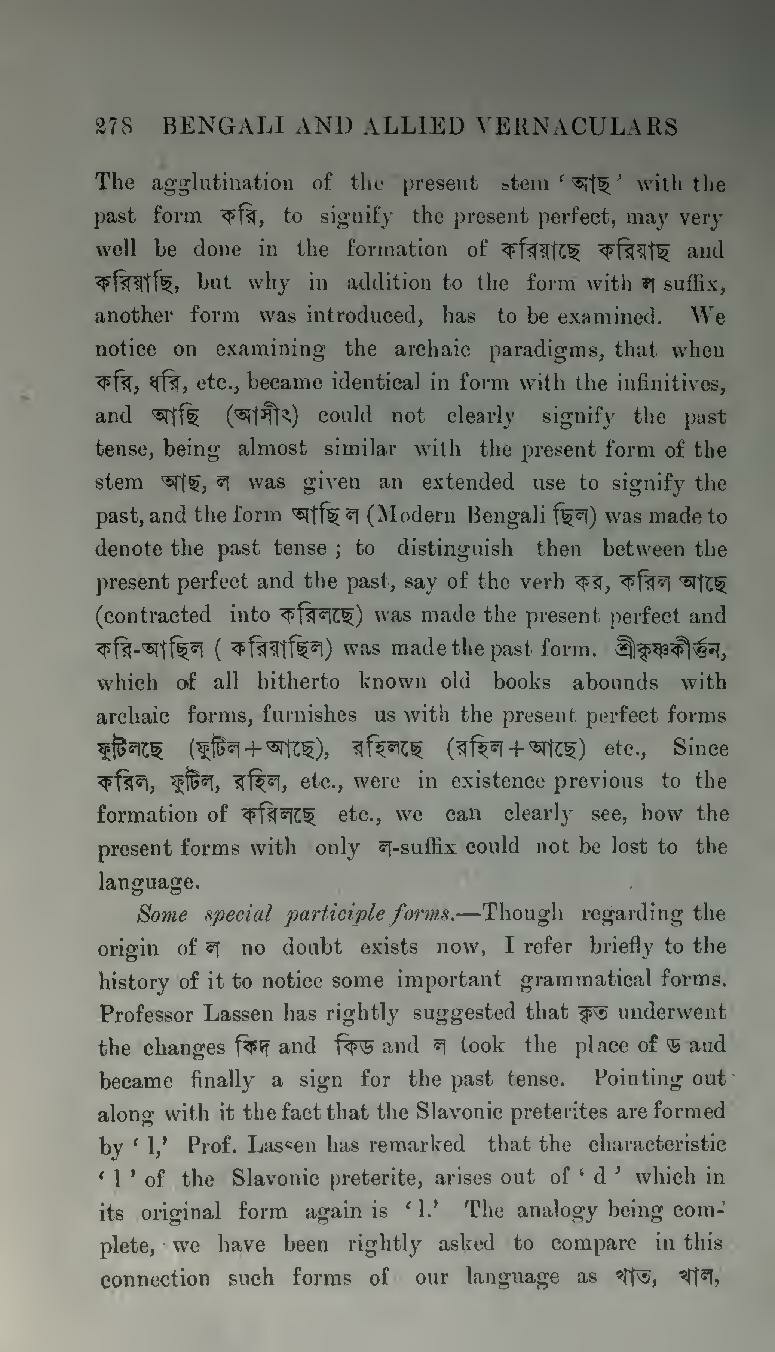The agglutination of the present stem 'আছ' with the past form করি, to signify the present perfect, may very well be done in the formation of করিয়াছে, করিয়াছ and করিয়াছি, but why in addition to the form with ল suffix, another form was introduced, has to be examined. We notice on examining the archaic paradigms, that when করি, ধরি, etc., became identical in form with the infinitives, and আছি (আসীৎ) could not clearly signify the past tense, being almost similar with the present form of the stem আছ, ল was given an extended use to signify the past, and the form আছি ল (Modern Bengali ছিল) was made to denote the past tense; to distinguish then between the present perfect and the past, say of the verb কর, করিল আছে (contracted into করিলছে) was made the present perfect and করি-আছিল (করিয়াছিল) was made the past form. শ্রীকৃষ্ণকীর্ত্তন, which of all hitherto known old books abounds with archaic forms, furnishes us with the present perfect forms ফুটিলছে (ফুটিল + আছে), রহিলছে (রহিল + আছে) etc. Since করিল, ফুটিল, রহিল, etc., were in existence previous to the formation of করিলছে etc., we can clearly see, how the present forms with only ল-suffix could not be lost to the language.
Some special participle forms.—Though regarding the origin of ল no doubt exists now, I refer briefly to the history of it to notice some important grammatical forms. Professor Lassen has rightly suggested that কৃত underwent the changes কিদ and কিড and ল took the place of ড and became finally a sign for the past tense. Pointing out along with it the fact that the Slavonic preterites are formed by 'l,' Prof. Lassen has remarked that the characteristic 'l' of the Slavonic preterite, arises out of 'd' which in its original form again is 'l.' The analogy being complete, we have been rightly asked to compare in this connection such forms of our language as খাত, খাল,
